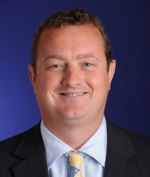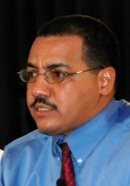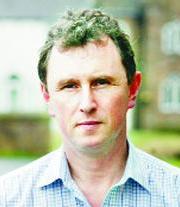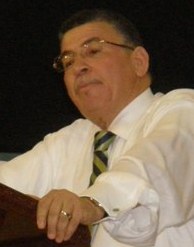Archive for September 30th, 2009
Perez murder trial stretches towards a fourth week
(CNS): Legal arguments over the scientific nature of footprints has seen defence counsel in the Josue Carillo-Perez query whether someone specializing in foot impressions could truly be considered an expert witness. Anthony Akiwumi made lengthy submissions to the court this week about the validity of foot impressions and whether a socked impression at the scene could be fairly compared to an inked print impression of the defendant’s bare foot. Akiwumi, who earlier in the trial questioned the fallibility of finger prints, has now questioned the idea that footprint analysis should be classed as scientific.
Although the trial of the man charged with the murder of Matthew Gareau in May 2008 was originally expected to end last week, the trial is already well into its third week, with attorneys on the case predicting it may well enter a fourth before the judge hears closing submissions and retires to make his decision.
Perez opted to reject his right to be heard by a jury at the beginning of the trail and it is now in the hands of Justice Roy Anderson. The Crown’s case is based on two latent finger print impressions found on the door of the deceased’s home and a socked foot impression which they say matches the defendant Perez, along with circumstantial evidence.
Defence counsel has argued that the defendant had visited Gareau’s home only a few weeks before the murder as a guest at a BBQ and that the latent prints are innocent contamination.

Alternative insurance offered for BAICO policies
 (CNS): Homeowners who hold a property insurance policy with troubled insurance agent British American Insurance Company (BAICO) Cayman, now have a way to continue insuring their homes this hurricane season. The controllers of BAICO, Simon Whicker and Kris Beighton (left) of KPMG, concluded an arrangement with Island Heritage Insurance last week that will ensure that all BAICO Cayman’s existing property insurance policyholders continue to have property insurance cover in place at this high risk time of year.
(CNS): Homeowners who hold a property insurance policy with troubled insurance agent British American Insurance Company (BAICO) Cayman, now have a way to continue insuring their homes this hurricane season. The controllers of BAICO, Simon Whicker and Kris Beighton (left) of KPMG, concluded an arrangement with Island Heritage Insurance last week that will ensure that all BAICO Cayman’s existing property insurance policyholders continue to have property insurance cover in place at this high risk time of year.
BAICO was placed in the hands of the KPMG accountants by the Cayman Islands Monetary Authority (CIMA) earlier this month in a bid to protect the assets of the company for policy holders. This followed a cease and desist order by CIMA in June prohibiting BAICO from issuing any new insurance policies of any kind.
KPMG said that, under the arrangement, all existing property insurance policyholders of BAICO Cayman have been offered new property insurance cover by Island Heritage Insurance on substantially the same terms as they had previously.
This swift action was taken following the Controllers being informed on Monday, 21 September, that a substantial element of BAICO Cayman’s property reinsurance cover had been cancelled by a major reinsurer. This meant that BAICO Cayman was no longer able to offer effective property insurance. In light of the potential exposure to BAICO Cayman and, in turn, to its policyholders, the controllers took immediate steps to protect policyholders’ interests.
Under the terms of BAICO Cayman’s property insurance policies, policies may be cancelled by BAICO Cayman or policyholders by giving seven days’ notice. Letters were sent to all BAICO Cayman’s property insurance policyholders last week, explaining the decision to cancel their insurance and providing them with instructions for continuing property cover with Island Heritage Insurance.
In addition, policyholders’ agents are continuing to contact all policyholders to explain the details of the arrangement that has been put in place. In order to receive immediate property cover from Island Heritage Insurance, all policyholders need to do is to visit either the BAICO Cayman offices or the Island Heritage Insurance offices, where they will receive immediate cover upon signing a new policy and paying the first instalment of their premium. Should policyholders be due a refund in respect of any unused portion of their premium paid to BAICO Cayman, this will be repaid to them by BAICO Cayman.
Anyone who holds a property insurance policy with BAICO Cayman who has not yet acted is urged to contact their local agent or the BAICO Cayman office, immediately.
Joint Controller Kris Beighton said, “The difficulties arising from BAICO Cayman’s reinsurance situation on the property book meant we had to expedite a substitution process to an alternative insurer for this line of business to prevent significant exposure to our policyholders. We’re obviously delighted that, through our working relationship with Island Heritage Insurance and the Judicial Manager of BAICO in the Bahamas, and the significant assistance and support of CIMA, we have managed to effect an immediate solution to provide protection to our local policyholders.”
Now that BAICO Cayman has transferred its property insurance portfolio, the controllers of BAICO Cayman are working with potential acquirers of the remainder of the BAICO Cayman business and hope to be able to make further positive announcements in the coming days or weeks.

Bodden Town man in court for burglary
(CNS): Police say 33-year-old Ernie Dave Ebanks Jr appeared in court yesterday (Tuesday, September 29) charged with burglary following an incident that took place earlier this month.
Ebanks, of Bodden Town, was remanded in custody on one count of burglary. He is accused of a series of burglaries committed in the Eastern Districts over the past few weeks.
Anyone with information about crime taking place in the Cayman Islands should contact their local police station or Crime Stoppers on 800-8477 (TIPS). All persons calling Crime Stoppers remain anonymous, and are eligible for a reward of up to $1000, should their information lead to an arrest or recovery of property/drugs.

Government pays TJI loan
 (CNS): The bridging loan accessed by Tom Jones International (TJI) in April this year would be fully repaid today (Wednesday 30 September), in accordance with the agreement between the previous administration, the bank and Tom Jones International, Education Minister Rolston Anglin said in a brief statement this morning. Following his half hour conversation yesterday on a radio talk show about the two school construction sites, his statement today said it appeared to be the general contractor’s intention to try this matter via the media, but claimed he had no desire or intention to do likewise.
(CNS): The bridging loan accessed by Tom Jones International (TJI) in April this year would be fully repaid today (Wednesday 30 September), in accordance with the agreement between the previous administration, the bank and Tom Jones International, Education Minister Rolston Anglin said in a brief statement this morning. Following his half hour conversation yesterday on a radio talk show about the two school construction sites, his statement today said it appeared to be the general contractor’s intention to try this matter via the media, but claimed he had no desire or intention to do likewise.
“Without getting into the details, I reiterate the point that all payments due in respect of the Clifton Hunter and John Gray High School projects have been made and they are therefore current,” the minister said.
Ina full page paid advertisement in the Caymanian Compass yesterday, TJI secured a short-term line of credit of $12 million from a local bank to purchase equipment and materials from overseas as well as to fund change orders. The contractor said that the PPM administration had promised to allocate a previously scheduled $10.5 million “balloon payment” in July 2009 — when government entered its new fiscal year — to pay off the bridge loan and that so far they had drawn down approximately $5.3 million on its line of credit. (See yesterday’s CNS report School dispute escalates.)
The contractor states that government never made its promised “balloon payment”, but the new government encouraged TJI to negotiate further with its bank (Scotiabank) to extend the due date of the loan and increase the amount to fund both projects, giving all parties an opportunity to explore a public/private partnership (PPP) to restructure the financing of the projects.
On Rooster’s call-in show, Cayman Crosstalk, yesterday morning Anglin said that the dispute with TJI was not an issue of government’s ability to pay the contractor. “We have fundamental disagreement with the contractor as it relates to certain … payments and what is truly due on a pay certificate. So the government has refused to make payment on the basis that it disagreed (with TJI),” he said. The minister told listeners that government would move forward and do whatever it was contractually obligated to do to protect interest of the Cayman Islands.
During the show, Anglin confirmed yesterday that TJI was one of a number of entities that had expressed interest in entering into a PPP in regards to the schools projects. He said government was willing to look at any proposal and if it made good commercial sense they would pursue that path, but they had not received a formal proposal as yet. TJI, he said, had presented a rough draft of a term sheet, which was “a long way from formal proposal”.
However, he said that there would be great difficulties moving forward with a partnership with TJI, given what he had already experienced as minister of education and labour with regards to TJI’s management of these projects.
For much of the 30 minute conversation, Anglin emphasised his view that most of the blame for the situation lay with the previous government and the contracts that were drawn up with Tom Jones International, which, he said, did not protect the Caymanian people.
“The previous administration and the education minister put the country in this situation through these contracts, so government is in position of weakness. The previous minister did nothing to protect the interest of Caymanians under these contracts,” the minister maintained. He said that the current administration would be using the Labour Law and the Immigration Law to do what they could, but said this was a “back door” approach, and he berated the PPM and the former minister of education for not including protective mechanisms in the contracts.
“At every point, it has been an absolute disaster,” Anglin said, and referred to the contracts as “a sweetheart deal”.
In the statement today he noted that, over the last few days there had been considerable discussion in the media regarding Tom Jones International and the new school projects situation. “While it appears to be the general contractor’s intention to try this matter via the media, I have no desire or intention to do likewise. However, it is unfortunate that the information shared with the public to date has been so selective, thus presenting an incomplete picture.”

MP becomes ‘frequent-flyer’
 (Lancaster Telegraph): An East Lancashire MP has been labelled Westminster’s most “frequent flyer” after clocking up numerous free trips around the world. Nigel Evans who also visited the Cayman Islands last year has also travelled to Hong Kong, Malaysia and Kenya in recent years – all funded by taxpayers or third parties. According to an investigation by Channel 4’s Dispatches team, the Conservative MP for Ribble Valley has made more than 50 foreign trips during the past 10 years. Evans is currently chairing a climate change conference in Tanzania.
(Lancaster Telegraph): An East Lancashire MP has been labelled Westminster’s most “frequent flyer” after clocking up numerous free trips around the world. Nigel Evans who also visited the Cayman Islands last year has also travelled to Hong Kong, Malaysia and Kenya in recent years – all funded by taxpayers or third parties. According to an investigation by Channel 4’s Dispatches team, the Conservative MP for Ribble Valley has made more than 50 foreign trips during the past 10 years. Evans is currently chairing a climate change conference in Tanzania.
Goto article

Internet advertising spend overtakes TV in UK
 (Reuters) – Spending on Internet advertising in Britain grew 4.6 percent in the first half of 2009, outperforming the wider ad sector, which slumped 17 percent, and making it the country’s biggest ad medium ahead of TV. According to the biannual report from the Internet Advertising Bureau (IAB), ad spend on the Internet grew to 1.75 billion pounds, with the medium accounting for 23.5 percent of all spend, ahead of television for the first time. Guy Phillipson, chief executive of the IAB, told Reuters the jump ahead of TV as the leading medium had come earlier than he expected.
(Reuters) – Spending on Internet advertising in Britain grew 4.6 percent in the first half of 2009, outperforming the wider ad sector, which slumped 17 percent, and making it the country’s biggest ad medium ahead of TV. According to the biannual report from the Internet Advertising Bureau (IAB), ad spend on the Internet grew to 1.75 billion pounds, with the medium accounting for 23.5 percent of all spend, ahead of television for the first time. Guy Phillipson, chief executive of the IAB, told Reuters the jump ahead of TV as the leading medium had come earlier than he expected.

Mac gets cash with no tax
 (CNS): The UK has granted permission for the Cayman Islands government to borrow up to $229 million of the $372 million it had wanted over the next financial year on the grounds that it will make cuts and broaden the country’s revenue base. However, Leader of Government Business McKeeva Bush said that he and his government had managed to prepare a budget that reduced expenditure, increased revenue and would get Cayman out of its position of dependency on the UK for borrowing without any direct taxes and even a small budget surplus by the end of 2009/10.
(CNS): The UK has granted permission for the Cayman Islands government to borrow up to $229 million of the $372 million it had wanted over the next financial year on the grounds that it will make cuts and broaden the country’s revenue base. However, Leader of Government Business McKeeva Bush said that he and his government had managed to prepare a budget that reduced expenditure, increased revenue and would get Cayman out of its position of dependency on the UK for borrowing without any direct taxes and even a small budget surplus by the end of 2009/10.
In a long presentation on Tuesday evening that was light on specifics but heavy on politics, Bush did say there would be fee increases across the board. Along with a two percent duty increase, he described increases on cigarettes, luxury goods and non-essential water craft. Bush said there would be some new transaction fees and some financial services fees would go up, as well as work permits — including new fees to fast track permits in as little as 24 hours. He said there would be no community enhancement fee or any other form of direct taxation for now, but he he would be conducting a study to look at widening the revenue base as requested by the overseas territories minister, Chris Bryant. He read the latest letter from the UK minister this week to the LoGB in which he agrees to allow the borrowing, $50 million of which has been granted immediately.
Speaking to a significant crowd at the Mary Miller Hall, despite the last minute venue change, Bush told the people that, although the talks with the UK had been tense, his government had continued to maintain a position that it would not be pressured to undermine Cayman’s success. He said that he would agree to examine solutions to financial sustainability but he had already found a way to cut expenditure and raise $100 million without taxes.
Bush pointed out that taxation in onshore jurisdictions was the reason why Cayman had been a success and the causes of the global financial crisis lay at the door of onshore jurisdictions, not Cayman.
“Is it the fault of the Cayman Islands that Lehman Bros failed?” he asked. “To those that say we should introduction taxation I say that is what caused their money to run to us.”
He said the new budget would bring a small surplus because of the cuts and new fees, and get Cayman back within the rules of the Public Management and Finance Law. He failed to say if he intended to pursue the extra $150 million to make up the $370 million plus he had originally requested to borrow but focused very heavily on his goals to encourage inward investment over the coming year.
In what is becoming a very familiar political position for Bush, he set out his intention to sell government assets, although he said the administration would seek to retain part ownership of any entity privatised. He also said that government would take a dividend from existing statutary authorities that had surpluses.
Bush also spoke of the development projects he would be encouraging that would require outside investment. He said he would be creating a channel in the North Sound, despite opposition, to allow a full marina for mega yachts and had established a committee, headed by Bob Soto, to examine that project. He also talked a great deal about the privatization of the sewerage system and was seeking tenders to develop that, which he said would create a thousand jobs. Bush also confirmed plans to build a cruise berthing facility cargo in George Town and put the cargo port out in East End.
Bush stated that he would be encouraging the development of five star resorts and wanted Cayman to return to the days when it welcomed people from overseas, creating a business and investment friendly environment. “Over protection will only stifle our economic development,” he said. “Let us get revenue from investment and not from taxes. Once we are compliant with the PMFL it will negate the need to depend on the UK.”
The LoGB warned of government cuts, which included reducing the government phone bill from its present $3.5 million by taking cell phones from all but the most senior civil servants, stopping the use of company vehicles except during office hours, and cutting overtime.
Provision will also be made in the budget to pay back local contractors that lost money in the previous government’s Matrix scrap metal deal, Bush said, as well as money for a police task force to clean up gun crime. He also announced the start of a clean-up programme for the islands in which government was investing $1.5 million, where the unemployed would be put to work cleaning roadsides and buildings to make Cayman attractive once again, starting on 1 November. He also said that the direct flight from Miami to Cayman Brac would be introduced in this year’s budget.
Although he said government was currently on target to present the budget to the Legislative Assembly on Thursday, not wishing to commit, he said it could be Friday.
Although rumours were rife yesterday that Bush would be announcing a Cabinet reshuffle, which including the demotion of Rolston Anglin from the post of Deputy Leader and Mike Adam from his post as a minister, no changes to the UDP line up were confirmed.
UK cop insults local police
(CNS): One of the Crown’s key witnesses in the case against Rudolph Dixon revealed his low opinion of his former fellow Caymanian officers and the senior command of the RCIPS in court on Tuesday as he faced cross examination from the defence on his evidence. Reading from transcripts compiled by Operation Tempura, Dixon’s defence counsel, Jonathan Rose, told the court how Graham Summers (left) had said his Caymanian colleagues were “utterly useless” and that former police commissioner, Buel Braggs, "couldn’t string a sentence together.” (Photo courtesy of Cayman 27)
During his questioning of the Crown’s main witness, Rose suggested that it was because of this attitude and his dismissal of senior officers that he had failed to listen and understand the reasons why a decision had been made that evening in April 2004 to allow Rudolph Evans, the former deputy commissioner, to go free following his arrest as a result of Summers actions .
Following Summers’ accusations that Dixon had let Evans goand made the case go away because of his previous position, Rose pressed the UK cop on his overall opinion on the RCIPS, its senior, command, the officers he worked with and his time in the Cayman Islands.
It became apparent that Summers believed the Caymanian officers he had worked with were not particularly hard working, were not career oriented and that the systems in the Cayman Islands were outdated and backward. In interviews with the Tempura officers, which he did not believe would ever be produced in open court, he revealed his feelings about the RCIPS and told them that the senior officers were not so much senior as superior and went around shouting orders. He told the Special Police investigation Team (SPIT) from Operation Tempura that he thought the senior cops in Cayman were childish and had a “status complex” because they displayed certificates they had been awarded on their walls and bragged about the courses they had been on. He also said he believed that police forces in the UK were more professional than the RCIPS.
Despite the evidence of his derision for the local officers, Summers denied that he had not listened to Dixon on the night of the DUI in April 2004 and claimed he did respect authority. However, he admitted that he had been disrespectful to Dixon on the phone when the deputy commissioner called him to explain why Evans had been released, and said that he had been “shirty” with Dixon.
Summers insisted that, although they had talked for more than nine and a half minutes, all Dixon had told him was that Evans had been released because of a past stated case which was not explained. Rose, however, suggested that the witness may simply not have wanted to listen to what Dixon was saying because of his attitude and the belief he already held about the senior command in the RCIPS.
“I suggest that call was very one sided because you weren’t prepared to listen,” Rose said, adding that as Summers was angry and distressed he was not prepared to accept the explanation from the deputy commissioner. Rose suggested that Summers had no respect for his senior officer, which was why he didn’t hear what Dixon was saying to him.
In the afternoon the Crown called its second witness, Alvan Boxwell, the local officer from the traffic unit who actually arrested Evans on the night in question on suspicion of DUI, and he told the court that the situation was very uncomfortable. He said that when he arrived at the scene and saw it was the former deputy commissioner, Rudolph Evans, that Summers had called them about, he was worried. He noted that there was a well-known rumour in the RCIPS that an officer should not arrest a fellow or former police officer otherwise you could expect to be targeted.
Boxwell told the court of his relief when he heard that the case would go no further. Boxwell admitted to have a poor recollection of all the events and he said that when he was first interviewed by the Operation Tempura team he was in total shock and couldn’t remember anything.
Going through his recollection of the evening of the arrest, however, Boxwell contradicted the testimony given by Summers on Monday to the court and insisted that he had made the decision to arrest Evans himself, despite feeling uncomfortable. He denied that he had only arrested Evans because Summers had vigorously insisted, as Summers had stated in his evidence on Monday.
Boxwell confirmed that it was common practice for police officers to have to satisfy in their own minds that an arrest was justified and that no officer should make an arrest ifthey themselves were not comfortable with the situation.
Boxwell admitted throughout his testimony that he felt uncomfortable and said that, on arrival at George Town Police Station, he had pulled aside Inspector Burman Scott, who was acting as the station duty officer that evening, and told him that he was uncomfortable about having arrested a former senior police officer. However, the police officer told defence counsel that he did not recall also telling Dixon that he was uncomfortable about the situation, just that he had arrested Evans and why.
The trial, which is being presided over by Justice Charles Quinn and is expect to last for up to two weeks, continues with Crown witnesses tomorrow morning at 10:00am.